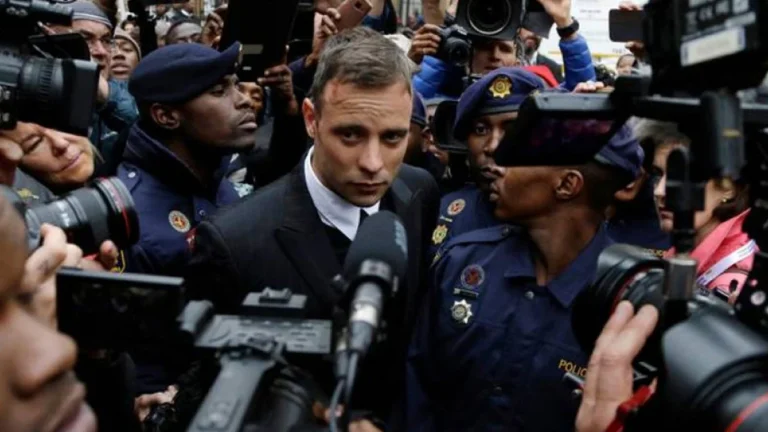South African former Olympic runner Oscar Pistorius was released from prison on parole, nearly 11 years after the fatal shooting of his girlfriend Reeva Steenkamp, a case that captivated global attention.
The 37-year-old, a double-amputee who gained fame as “Blade Runner” for his carbon-fibre prosthetics, completed over half of his sentence and was discreetly released from Atteridgeville prison near Pretoria on Friday, eluding the media presence outside.
“The Department of Correctional Services confirms that he is now under the supervision of Community Corrections and is at home,” the department stated.
As part of his parole conditions, Pistorius is prohibited from speaking to the media.
The authorities had previously informed the press of the restricted access to Pistorius during his release.
Pistorius was convicted of murdering Steenkamp, then 29, on Valentine’s Day in 2013, shooting her four times through a bathroom door in his high-security house in Pretoria. This incident occurred a year after Pistorius made history as the first double-amputee to compete at the Olympics, participating in the 2012 London games.
After a prolonged trial and several appeals, he was found guilty of murder and sentenced to 13 years in prison in 2017. Pistorius had maintained his innocence, claiming he mistook Steenkamp for an intruder.
On the eve of his release, June Steenkamp, Reeva’s mother, expressed that while she respects the justice system and the terms of his parole, “the pain and loss remain.”
“Justice feels unattainable when your loved one is gone forever, and no sentence can bring Reeva back. Those of us left behind are serving a life sentence,” she remarked.
In South Africa, offenders are generally eligible for parole after serving half their sentence. Pistorius’ initial parole request in March was denied as he hadn’t completed the minimum detention period. However, a Constitutional Court ruling in October corrected this, leading to a November hearing that sanctioned his release.
As part of his parole conditions, effective until the end of his sentence in 2029, Pistorius must undergo therapy for anger management and gender-based violence. He is also barred from consuming alcohol and other substances, must complete community service, and adhere to specific home curfew hours.
June Steenkamp noted on Friday that these conditions “demonstrate the seriousness with which gender-based violence is regarded by the justice system” in South Africa.


